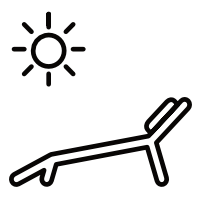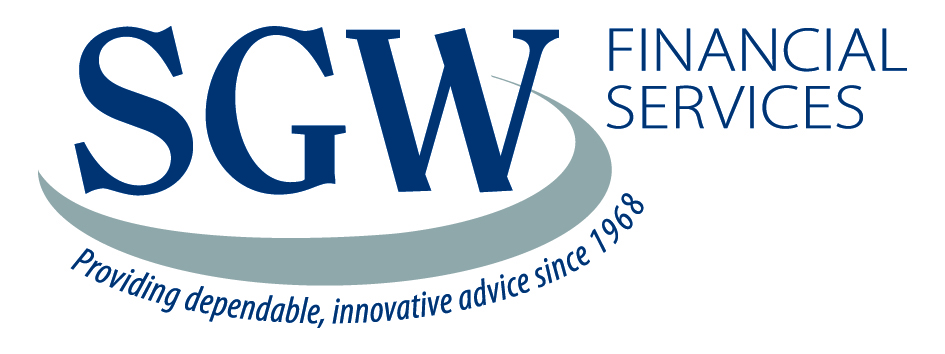-
 Are you headingWe are here to help.ABOUT USin the rightfinancial direction?
Are you headingWe are here to help.ABOUT USin the rightfinancial direction?














With you along the way
At SGW Financial Services we work with you along the way on life’s journey. Whether you are getting married, starting a family, embarking on the trip of a lifetime or planning to enjoy your years after work, we can help.
It all starts with understanding exactly what it is you want to achieve. We will then create your financial plan to help you get there.
We can help you with ...

Superannuation
What is superannuation?
Superannuation (or super) is a fund specifically designed to help you save and invest for your retirement. It’s restricted as you generally can’t withdraw from super until you retire or reach your preservation age (that’s the intention, although there are special conditions of release). And super funds are set up as trust funds. This means a trustee is appointed to manage the fund on behalf, and for the benefit, of its members. Super receives special tax treatment compared to your other money. When it comes to investing over the long term, there aren’t many better tax-effective ways to save for your retirement. Lower taxes and more investment options – such as local and international shares, property and fixed interest investments – offer your super more potential to grow.
Why do I need super?
- Super is compulsory for employees. Superannuation Guarantee (SG) contributions** were introduced to help us take control of our retirement.
- The next step is to use our AMP super simulator to see how you’re tracking and determine what strategies you can use to reach your goals.
** Deposits into a super fund are called contributions.
Advantages of super
Super opens your money to the world of investment markets and you can choose how it is invested. Money in super is taxed in different ways to your other investments. It’s designed to reward you for investing for the long term. Your insurance premiums, which are part of your super contributions, may be paid from your pre-tax salary, which is a tax-effective way to enjoy the protection you and your family need.
How does my super work?
The most common type of super is an accumulation fund, which is like a managed fund or investment. The main difference is the advantageous tax treatment on contributions and earnings which your money enjoys until you retire. If you have a lot of assets and have the time, you may want to consider a self-managed super fund to take control of your super.
Making a contribution
Deposits into super are known as ‘contributions’. There are two types of contributions. They can be made from your:
- pre-tax income (concessional contributions) and
- post-tax income (non-concessional contributions).
Generally, concessional contributions (made from pre-tax income) attract a contributions tax of 15%, which can be significantly lower than your marginal tax rate. Tax on non-concessional contributions (made from post-tax income) does not apply. However, there are caps on both these types of contributions which vary depending on your age.
Benefits
- Earnings in super are taxed at up to 15% (and only 10% on capital gains), which is lower than most people’s marginal tax rate. If you start a pension at retirement then the tax on earnings in super reduces to nil.
- If you withdraw after age 60 your money is tax free.
- You can withdraw your super balance (the benefit) when you reach your preservation age. This varies depending on your birth date. By 2025 everyone will have a preservation age of 60.
- There are different tax treatments on lump sum payments depending on the size of the benefit and the age and service period of the member.
- Money invested after July 1999 is fully preserved, which means it can’t be accessed until you reach your preservation age.
More flexibility
- Super is becoming more flexible with more strategies and ways to reach your retirement goals:
- The government’s co-contribution scheme is designed to help low to middle income earners get more into their super.
- Concessional contributions can be used to reduce your tax.
- A transition to retirement strategy means you can still work full time or part time after your preservation age and still contribute to your super.
- Self-managed super funds allow you to take even more control of your super.
SGW Financial Services, Financial Planners in Tumut provide superannuation advice. Contact us on 02 6947 2866.
Superannuation
Superannuation is a way to save for your retirement. You build up super while you are working to make sure you can have a comfortable retirement.
Read More....
Superannuation
What is superannuation?
Superannuation (or super) is a fund specifically designed to help you save and invest for your retirement. It’s restricted as you generally can’t withdraw from super until you retire or reach your preservation age (that’s the intention, although there are special conditions of release). And super funds are set up as trust funds. This means a trustee is appointed to manage the fund on behalf, and for the benefit, of its members. Super receives special tax treatment compared to your other money. When it comes to investing over the long term, there aren’t many better tax-effective ways to save for your retirement. Lower taxes and more investment options – such as local and international shares, property and fixed interest investments – offer your super more potential to grow.
Why do I need super?
- Super is compulsory for employees. Superannuation Guarantee (SG) contributions** were introduced to help us take control of our retirement.
- The next step is to use our AMP super simulator to see how you’re tracking and determine what strategies you can use to reach your goals.
** Deposits into a super fund are called contributions.
Advantages of super
Super opens your money to the world of investment markets and you can choose how it is invested. Money in super is taxed in different ways to your other investments. It’s designed to reward you for investing for the long term. Your insurance premiums, which are part of your super contributions, may be paid from your pre-tax salary, which is a tax-effective way to enjoy the protection you and your family need.
How does my super work?
The most common type of super is an accumulation fund, which is like a managed fund or investment. The main difference is the advantageous tax treatment on contributions and earnings which your money enjoys until you retire. If you have a lot of assets and have the time, you may want to consider a self-managed super fund to take control of your super.
Making a contribution
Deposits into super are known as ‘contributions’. There are two types of contributions. They can be made from your:
- pre-tax income (concessional contributions) and
- post-tax income (non-concessional contributions).
Generally, concessional contributions (made from pre-tax income) attract a contributions tax of 15%, which can be significantly lower than your marginal tax rate. Tax on non-concessional contributions (made from post-tax income) does not apply. However, there are caps on both these types of contributions which vary depending on your age.
Benefits
- Earnings in super are taxed at up to 15% (and only 10% on capital gains), which is lower than most people’s marginal tax rate. If you start a pension at retirement then the tax on earnings in super reduces to nil.
- If you withdraw after age 60 your money is tax free.
- You can withdraw your super balance (the benefit) when you reach your preservation age. This varies depending on your birth date. By 2025 everyone will have a preservation age of 60.
- There are different tax treatments on lump sum payments depending on the size of the benefit and the age and service period of the member.
- Money invested after July 1999 is fully preserved, which means it can’t be accessed until you reach your preservation age.
More flexibility
- Super is becoming more flexible with more strategies and ways to reach your retirement goals:
- The government’s co-contribution scheme is designed to help low to middle income earners get more into their super.
- Concessional contributions can be used to reduce your tax.
- A transition to retirement strategy means you can still work full time or part time after your preservation age and still contribute to your super.
- Self-managed super funds allow you to take even more control of your super.
SGW Financial Services, Financial Planners in Tumut provide superannuation advice. Contact us on 02 6947 2866.

Retirement Planning
Transitioning into retirement
You no longer have to retire on the day you turn 65. The day you stop working is now in your hands. By using a Transition To Retirement strategy you can take control of your retirement date, prolong your retirement or use it to turn a redundancy into a time of opportunity.
Managing your retirement
Reaching your retirement is a significant milestone, and it’s important you live the life you want to. There are still many ways to make the most of this stage of your life and you might have a few questions.
- Where should I invest my money?Should you leave it in super or start an income stream? Take the annuity or pension? How good are Retirement savings accounts?
- Make your money last Do you have the right asset mix? And have you structured your finances to maximise government benefits? And what’s the best way to manage your debt?
- Do I pay tax in retirement? It depends on how the money went into your super, how you take money out and how old you are. We look at ways to minimise the tax impact.
- How much can I withdraw from super? What are the minimums and maximums you need to be aware of.
- Preparing for residential careLooking for aged care can be difficult and there’s lots to consider. Being aware means being prepared.
- Estate planningGood estate planning isn’t just about making a will. It’s a good way to take stock of your finances. Read more
For retirement planning advice in Tumut contact SGW Financial Services on 02 6947 2866.
Retirement Planning
Retirement may seem like a long way off but putting money into super now is still a tax effective way to invest your money. You also can benefit from the effects of compounding returns.
Read More ....
Retirement Planning
Transitioning into retirement
You no longer have to retire on the day you turn 65. The day you stop working is now in your hands. By using a Transition To Retirement strategy you can take control of your retirement date, prolong your retirement or use it to turn a redundancy into a time of opportunity.
Managing your retirement
Reaching your retirement is a significant milestone, and it’s important you live the life you want to. There are still many ways to make the most of this stage of your life and you might have a few questions.
- Where should I invest my money?Should you leave it in super or start an income stream? Take the annuity or pension? How good are Retirement savings accounts?
- Make your money last Do you have the right asset mix? And have you structured your finances to maximise government benefits? And what’s the best way to manage your debt?
- Do I pay tax in retirement? It depends on how the money went into your super, how you take money out and how old you are. We look at ways to minimise the tax impact.
- How much can I withdraw from super? What are the minimums and maximums you need to be aware of.
- Preparing for residential careLooking for aged care can be difficult and there’s lots to consider. Being aware means being prepared.
- Estate planningGood estate planning isn’t just about making a will. It’s a good way to take stock of your finances. Read more
For retirement planning advice in Tumut contact SGW Financial Services on 02 6947 2866.

Wealth Protection
Total and permanent disablement (TPD)
TPD cover provides a lump sum if you become unable to work due to a permanent disability. This cover can help you pay for medical expenses, repay major debts and help provide for your future.
Trauma cover
Trauma cover provides a lump sum if you’re diagnosed with a medical condition or undergo a procedure outlined in your policy. This may include a heart attack, major organ transplant, cancer or stroke — to name a few. Trauma cover is designed to help cover your medical costs and living expenses, providing you with some financial security during the important recovery period.
Death cover
Death cover may be important for people of all ages, especially if you have others relying on you and large debts such as a mortgage. Death cover provides a lump sum to your beneficiaries if you die. This can be used to help meet the costs of your mortgage, other debts and/or cover your family’s future expenses. Many policies make an advance payment of the insured sum if you are diagnosed with a terminal illness. With Death, Total Permanent Disablement and Trauma cover you can:
- Find comfort in knowing your family will receive a lump sum payment to help them financially if you were to die or become terminally ill.
- Receive financial support if you become seriously disabled, maintain your quality of life and help meet the cost of rehabilitation programs and daily living expenses with TPD insurance.
- Take the financial pressure off and give yourself time to recover, should you experience one of the traumatic events listed in our trauma cover, including cancer, stroke, heart attack and coronary artery surgery. Children’s trauma cover can also be selected.
Income Protection Insurance
You insure your car, the family home and even your health – so why not your ability to earn an income. Have you ever thought about what would happen if you became ill or were injured and couldn’t work for an extended period of time? Would you be able to meet your financial commitments without your regular income? If not, it’s time you considered income protection. When you think about what life would be like without your regular income, your earning capacity becomes possibly your greatest asset. Chances are, you’ve based the achievement of your goals and ambitions on having a regular cash flow. If you became ill and were unable to work and maintain that cash flow, your goals may no longer be achievable.
Business Overheads Insurance
What would happen to your business if you were too ill or injured to work? Business Overheads Insurance helps you meet your ongoing business expenses by reimbursing eligible business overheads as a monthly amount if you are too ill or injured to work.
Protect your business expenses
Recover with peace of mind knowing that, if you are unable to work due to injury or illness, your business overheads insurance will reimburse your business expenses such as:
- Rent
- Property Rates
- Vehicle leases
- Salaries
SGW Financial Services provides wealth protection advice in Tumut. Contact us on 02 6947 2866.
Wealth Protection
Insurance is the foundation of all financial plans. We can help you evaluate the risks and come up with the right insurance solution for you and your family.
Read More ....
Wealth Protection
Total and permanent disablement (TPD)
TPD cover provides a lump sum if you become unable to work due to a permanent disability. This cover can help you pay for medical expenses, repay major debts and help provide for your future.
Trauma cover
Trauma cover provides a lump sum if you’re diagnosed with a medical condition or undergo a procedure outlined in your policy. This may include a heart attack, major organ transplant, cancer or stroke — to name a few. Trauma cover is designed to help cover your medical costs and living expenses, providing you with some financial security during the important recovery period.
Death cover
Death cover may be important for people of all ages, especially if you have others relying on you and large debts such as a mortgage. Death cover provides a lump sum to your beneficiaries if you die. This can be used to help meet the costs of your mortgage, other debts and/or cover your family’s future expenses. Many policies make an advance payment of the insured sum if you are diagnosed with a terminal illness. With Death, Total Permanent Disablement and Trauma cover you can:
- Find comfort in knowing your family will receive a lump sum payment to help them financially if you were to die or become terminally ill.
- Receive financial support if you become seriously disabled, maintain your quality of life and help meet the cost of rehabilitation programs and daily living expenses with TPD insurance.
- Take the financial pressure off and give yourself time to recover, should you experience one of the traumatic events listed in our trauma cover, including cancer, stroke, heart attack and coronary artery surgery. Children’s trauma cover can also be selected.
Income Protection Insurance
You insure your car, the family home and even your health – so why not your ability to earn an income. Have you ever thought about what would happen if you became ill or were injured and couldn’t work for an extended period of time? Would you be able to meet your financial commitments without your regular income? If not, it’s time you considered income protection. When you think about what life would be like without your regular income, your earning capacity becomes possibly your greatest asset. Chances are, you’ve based the achievement of your goals and ambitions on having a regular cash flow. If you became ill and were unable to work and maintain that cash flow, your goals may no longer be achievable.
Business Overheads Insurance
What would happen to your business if you were too ill or injured to work? Business Overheads Insurance helps you meet your ongoing business expenses by reimbursing eligible business overheads as a monthly amount if you are too ill or injured to work.
Protect your business expenses
Recover with peace of mind knowing that, if you are unable to work due to injury or illness, your business overheads insurance will reimburse your business expenses such as:
- Rent
- Property Rates
- Vehicle leases
- Salaries
SGW Financial Services provides wealth protection advice in Tumut. Contact us on 02 6947 2866.
Why Choose Us?
Exceptional Personal Service
Our focus is on listening, understanding, and caring about your concerns and providing you with an individual level of service.
Ongoing Support
Our friendly support team will support you throughout your journey with us and answer any questions you have along the way.
Knowledge and Experience
Our Financial Advisers are highly qualified and have the knowledge and experience necessary to focus on all your important financial matters.
A Holistic Approach
We want to understand exactly what you want to achieve in life and provide you with strategies to guide you towards your goals.
Keep You On Track
We will keep you accountable along the way because we want you to stay on track to achieve your goals.
Ease and Convenience
Deal with one company for your superannuation, investment, debt management, insurance and estate planning needs.
Latest News
Setting up a lifetime income stream is one way to get regular payments in retirement.…
Thinking of buying a home? That’s a big step and an exciting one too. But…
Quoting a tax file number When you buy shares, you have a choice whether you…
Why you should review your super Your super could be one of the biggest assets…




